On November 13, 2025, the State Tax University hosted the International Forum “Human, Society, Communication: Adaptation, Resilience, and Leadership in Times of Transformation,” which brought together representatives of educational institutions, public authorities, the academic community, and student youth.
Master’s students of the educational program “Regional Governance and Self-Government” joined the work of the forum by presenting the results of their research within the thematic sections of the event. Oleksandr Lynchuk presented his original classification of mechanisms of youth participation in public governance, emphasizing the importance of institutionalizing youth engagement and strengthening democratic interaction between young people and authorities. Vladyslav Yashchenko highlighted the role of creativity as a strategic resource for modern public authorities and its influence on public trust. He proposed an integrated model for assessing creativity, combining cognitive, social, and digital indicators in the context of the development of e-governance.
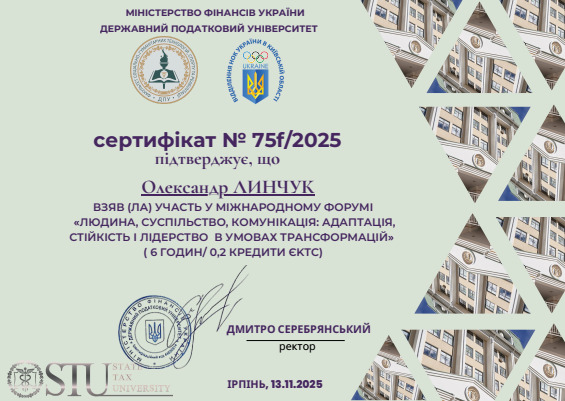 |
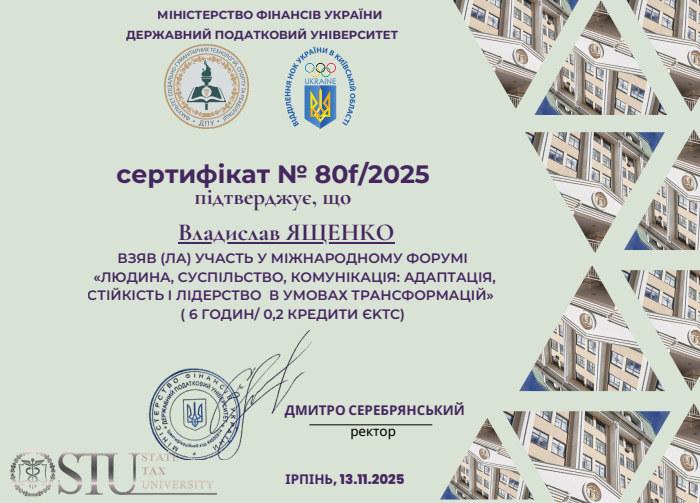 |
The issue of leadership and its role in implementing environmental policy was addressed in the presentation of Valerii Malchenko, who, using the case of the Borodianka community, demonstrated that effective management decisions based on community partnership are essential for environmental restoration and sustainable territorial development.
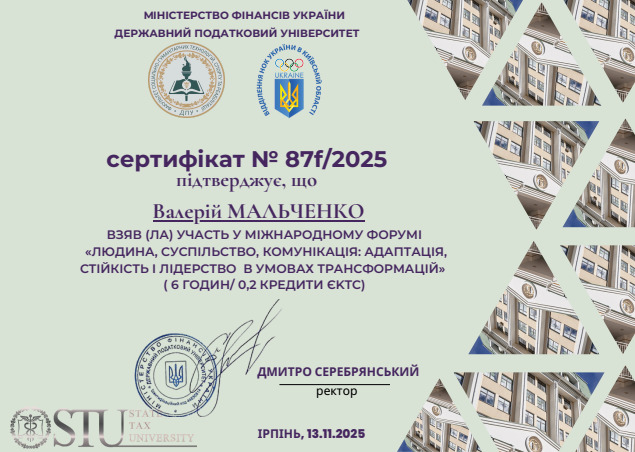
The research of Vladyslav Zhuravel and Vladyslav Yudin is united by a common European integration vector, as both works focus on the implementation of European approaches into Ukraine’s system of regional development and local self-government. V. Zhuravel centered his work on adapting European models of socio-environmental forecasting to strengthen the resilience of Ukrainian regions. V. Yudin outlined the possibilities of implementing the principles of the European Charter of Local Self-Government through effective communication and transparency in community governance.
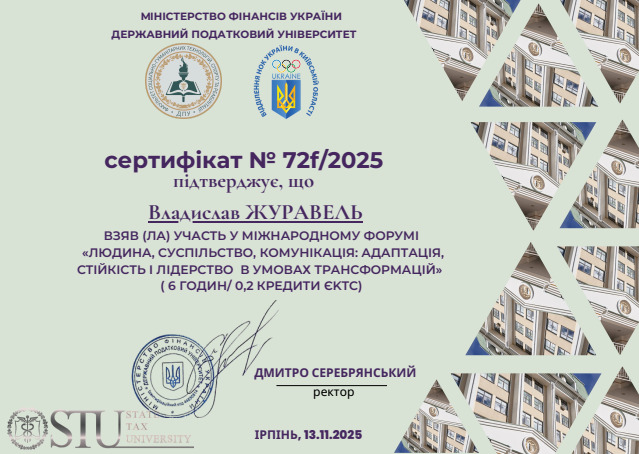 |
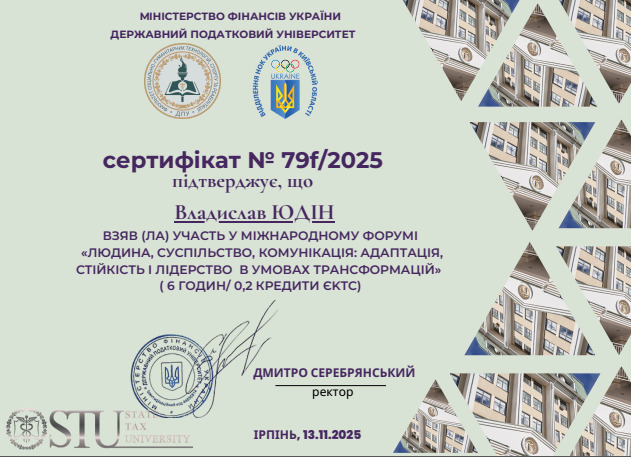 |
Participation in the forum became an important step in the professional development of the master’s students. Each participant received a personalized certificate of participation in the international event, and the presented research findings — obtained during the preparation of their qualification theses — will be included in the forthcoming collection of abstracts, which the academic community is already anticipating.











